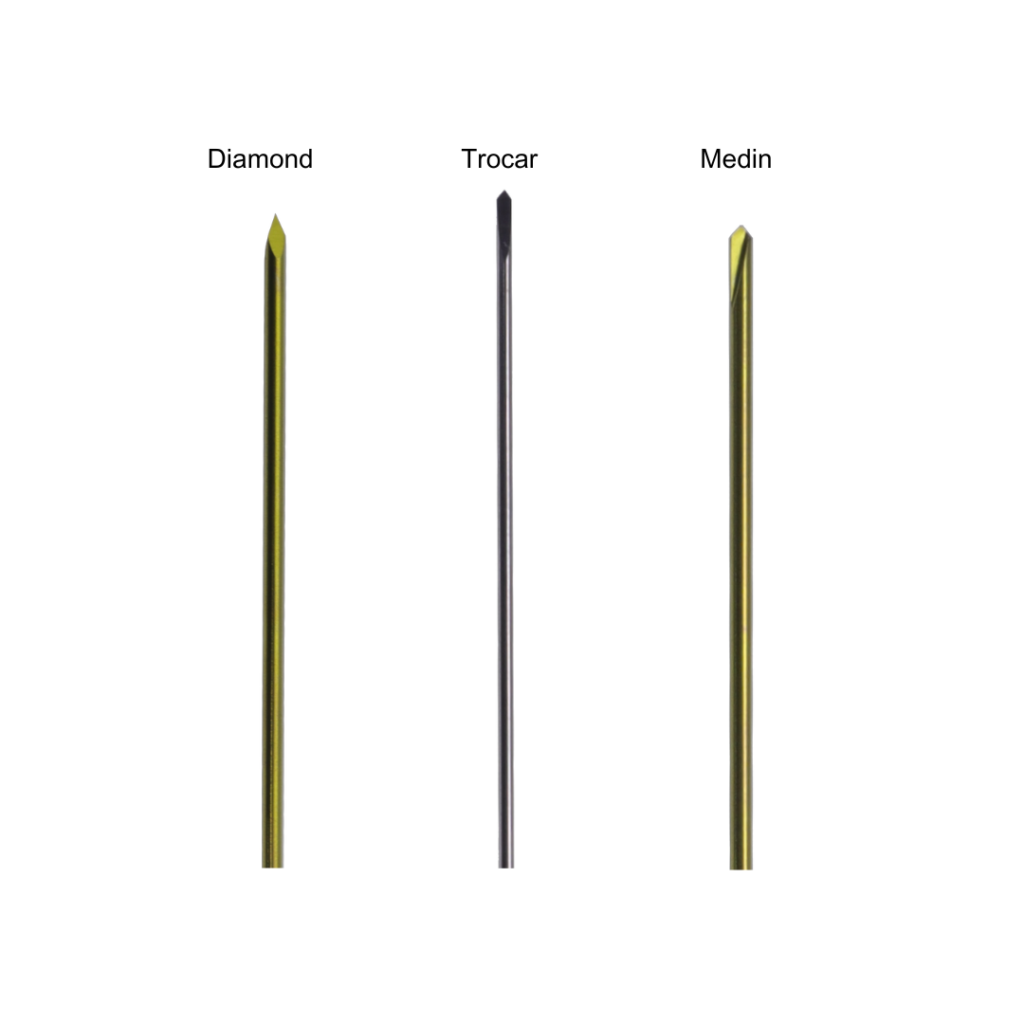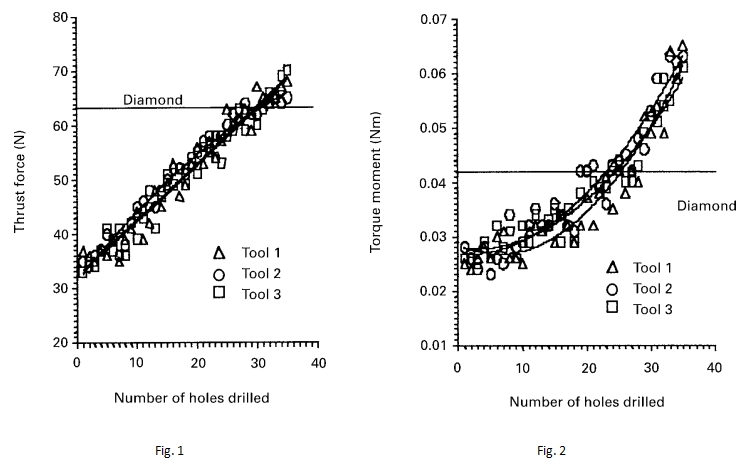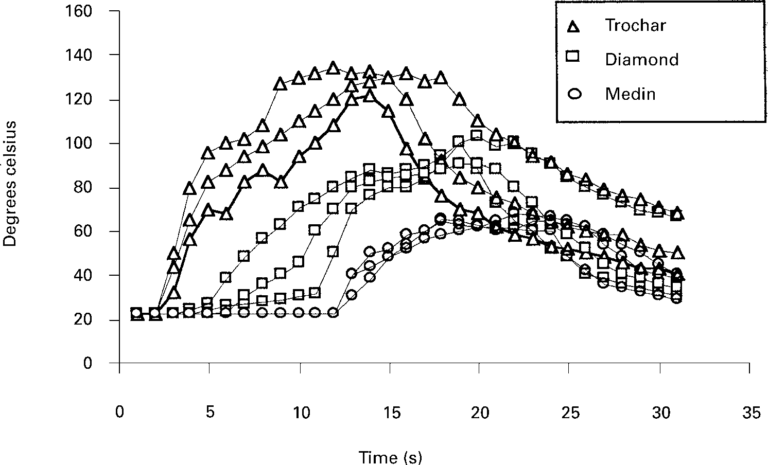K-wires are used for fixation of bone fragments of epi-/metaphyseal fractures, fractures of small bones, but also for reduction of fragments in multifragmental fractures to achieve stable fixation.
History of K-wire
In 1909, Martin Kirschner introduced the Kirschner wire (K-wire), initially used for skeletal traction but now serving various purposes. Its development was influenced by changing surgical goals and the introduction of antibiotics. Early K-wires were hammered into predrilled holes, but drilling became the standard insertion method due to its simplicity and benefits like percutaneous insertion. 然而, this technique can cause temperature elevation, leading to potential osteonecrosis and heat-related complications.
Different types of K-wire tips

Drilling Efficiency and Temperature of Three Types of Kirschner Wires
Using the same drill speed (rev/min) and feed rate, the medin K-wire point produced the lowest thrust force and torque. Drill point temperatures were highest with the trochar geometry (129 ± 6°C), followed by the diamond (98 ± 7°C). The lowest temperatures were recorded with the Medin K-wire (66 ± 2°C). On repeated drilling it could be used for up to 30 holes before reaching the less satisfactory drill performance of the diamond tip. The medin K-wire provides a better alternative as it requires less effort for insertion, generates less heat and may be re-used.

Graph 1 showing the thrust force and graph 2 the torque moment during the tool life test of the Medin wires in pig cortical bone (drill speed n = 280rev/min, feed rate f = 0.1mm/rev). For comparison the mean thrust force and torque moment of the diamond tip are included.

Graph 3 showing the temperature elevation for different K-wire tips when drilling into pig cortical bone over 35 seconds (drill speed n = 280 rev/min, feed rate f = 0.1 mm/rev).
关于 CareFix
CareFix是一家专业从事骨科医疗器械设计的国家高新技术企业, 生产, 销售和服务. 成立于 2009, 我们致力于儿科植入物,脚 & 脚踝植入物,external fixation. 欢迎来我厂参观,距上海虹桥机场约半小时车程.